As the international community marks the World Press Freedom Day, Socio-Economic Rights and Accountability Project (SERAP) and Nigeria Guild of Editors (NGE) have urged Nigerian authorities at all levels of government to “stop using repressive and anti-media laws such as the Cybercrimes Act and some codes of the National Broadcasting Commission (NBC) to target, intimidate and harass journalists, critics and media houses.”
The statement followed the interactive session on ‘the state of press freedom in Nigeria’ held today at the Radisson Blu Hotel in Ikeja. The event was jointly organized by SERAP and NGE to mark the World Press Freedom Day.
In a joint statement, SERAP and NGE said that, “the government of President Bola Tinubu, the country’s 36 governors and FCT minister must now genuinely uphold press freedom, ensure access to information to all Nigerians, obey court judgments, and respect the rule of law.”
The groups expressed “serious concerns about the escalating crackdown on the right to freedom of expression and media freedom and the flagrant disregard for the rule of law by authorities at all levels of government.”
The groups “note that the suppression of the press in recent times takes various forms ranging from extrajudicial to unlawful detentions, disappearances, malicious prosecutions and wrongful use of both legislation and law enforcement.”
The statement, read in part: “We would continue to speak truth to power and to hold authorities to account for their constitutional and international obligations including on freedom of expression and media freedom.”
“Nigeria as a country has a long and unpleasant history of press gagging and clampdown on media freedom, which is evidence of extensive state censorship of media and in some cases, the utter control of state-owned media houses.”
“This position has not changed considerably despite almost 25 years of unbroken democratic rule in the Fourth Republic.”
“We are concerned that press freedom remains under threat, especially due to economic challenges and other challenges such as navigating digital surveillance, hacking, online harassment and internet shutdowns.”
“Freedom of the press is one of the cornerstones of a democratic society. Journalism is not a crime; it is fundamental to a free society.”
“Freedom of the press is closely related to the freedom of expression, found in article section 39 of the Nigerian Constitution 1999 [as amended] and the provisions of international human rights treaties such as article 9 of the African Charter on Human and Peoples’ Rights and article 19 of the International Covenant on Civil and Political Rights to which Nigeria is a state party.”
“Press freedom is essential for journalists and media organisations to report freely in the public interest. Press freedom also has wider significance, as a free and independent media contributes to transparency and accountability of government.”
“Press freedom is therefore essential not only for free speech as a public good but also for the enjoyment of other human rights.”
“It is important not only to journalists and media organisations, which publish the information but also to citizens, who have a right to access information from a diversity of sources.”
“This in turn is essential to ensuring the effective exercise of the right to participate in one’s government and the proper election of the people’s representatives.”
“Extensive research has been carried out on the existing legislation and the deliberate proposing of Bills aimed at silencing dissenting voices and muffling the press. In addition, there are a plethora of cases of threats, intimidation and actual aggression employing law enforcement, regulating bodies, and State might.”
“There are incessant reports of censorship and surveillance, all aimed at identifying and silencing dissenting opinions rendered in mainstream media or other social media channels.”
“We are concerned that freedom of information requests are frequently refused by authorities at all levels of government.” Inadequate funding and lack of access to independent funding have also been identified as major hindrances to media freedom.”
“We therefore urge the Federal Government to take effective and concrete measures to review existing laws to reflect respect for media freedom and human rights.”
“The NBC must stop using its codes to clampdown on broadcast stations and to impose arbitrary fines on them. The NBC must review its codes to bring them in line with the Nigerian Constitution 1999 [as amended] and international human rights standards.”
“We urge the Federal Government to review laws like the Official Secrets Act, Criminal Code Act and Cybercrime Act for potential restrictions on free speech and press; and amend them in line with international human rights standards and Agreements, including the Windhoek Declaration for the Development of a Free, Independent and Pluralistic Press.”
“We urge the Federal Government to strengthen the independence of regulatory bodies like the National Broadcasting Commission (NBC) and Nigerian Press Council (NPC) to ensure impartial regulation and promote self-regulation within the media.”
“We urge the Attorney General to push for the immediate amendment of the Cybercrimes Act and other repressive legislation, and bring these laws in line with the Nigerian Constitution of 1999 (as amended) and international human rights obligations to which Nigeria is a state party.”
“We urge the Attorney General to advise President Bola Tinubu to promptly obey all outstanding court judgments including the ECOWAS Court judgment directing the Federal Government to repeal the repressive Cybercrimes Act and bring it in conformity with Nigeria’s international human rights obligations and commitments.”
“We urge the Minister of Information to promptly review restrictive and oppressive media legislation in Nigeria and pursue the immediate revision of any provisions that violate the right to freedom of expression, access to information including online and media freedom, and ensure that any restrictions on media freedom are necessary, proportionate and the least restrictive.”
“We urge the Minister of Information to ensure that the regulatory mechanisms including the National Broadcasting Commission are independent and promote self-regulation of the media.”
“We urge the Minister of Information to publicly express commitment to the promotion and protection of freedom of expression and access to information including online and media freedom in Nigeria.”
“We urge state governors to ensure that security agencies, the Nigeria Police Force and other authorities drop all charges against journalists, bloggers and other media workers, and critics, and cease further arbitrary closures of radio and television stations.”
“We urge state governors to publicly support and commit to the protection and promotion of the right to freedom of expression, access to information and the media freedom, including public reporting of sensitive political and other issues within their states.”
“We urge state governors to ensure that any government or security officials found responsible for obstructing, abusing, or attacking journalists, critics or media organisations are appropriately disciplined or prosecuted.”
“We urge state governors to publicly support and ensure the direct and full application of the Freedom of Information Act within their respective states.”
“We urge state governors to ensure adequate compensation and reparation for victims of human rights violations in their respective states, including restitution, satisfaction, and guarantee of non-repetition.”
“We urge the National Assembly to immediately harmonise all laws pertaining to freedom of expression, media freedom and civic space in Nigeria to confer authority on a specific independent agency that will oversee the collection, maintenance, usage, and dissemination of the personal information and records of all citizens and prioritise fundamental human rights.”
“We urge the National Assembly leadership to sponsor a resolution condemning the persistent violations of freedom of expression, media freedom and crackdown on civic space in Nigeria and all harassment, intimidation, and attacks on journalists, critics, bloggers and media organisations by state governors and the Federal Government.”
“We urge the National Assembly to promptly and comprehensively review the Cybercrimes Act and other restrictive legislation, and revise them as appropriate to bring them into line with Nigeria’s international human rights obligations and commitments regarding the right to freedom of expression, access to information and media freedom.”
“We urge the National Assembly to immediately drop any social media and other bills that would restrict freedom of expression, media freedom and civic space and undermine the effective enjoyment of these rights in Nigeria.”
“We urge the international community to encourage the Nigerian authorities to uphold constitutional and international human rights obligations on human rights and to respect, protect, promote and fulfil these rights including freedom of expression and opinion, access to information and privacy online and offline, and ensure a free and independent media landscape.”
“We urge the international community to hold Nigerian authorities to account for violations of human rights in the country including by calling on the authorities at both the Federal and state levels to immediately and unconditionally release anyone detained solely for peacefully exercising their human rights and to immediately withdraw any charges against them.”
The interactive session was attended by senior members of the media, civil society groups and other stakeholders. Those who attended the event included: Gbenga Adefaye, Provost of the Nigerian Institute of Journalism; Richard Akinnola; Eze Anaba, President, NGE; Dr Iyobosa Uwugiaren, NGE’s Secretary; Lanre Idowu, CEO Diamond Publications Ltd; and Abiodun Odusote, Professor of Law, UNILAG.
Others who attended the event included: Mustapha Isah former President, NGE; Present Silverbird News director; Mr. Fred Braimoh, Deputy director FRCN; and Paulyn Ogbodaga, executive director, AIT.


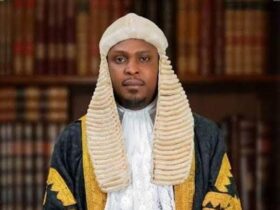



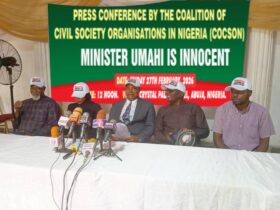
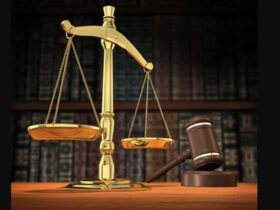
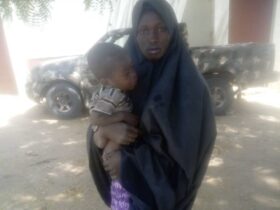
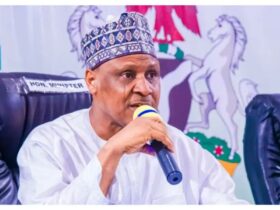
Leave a Reply